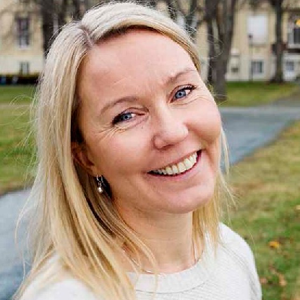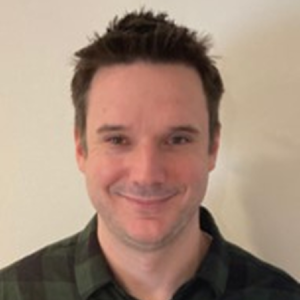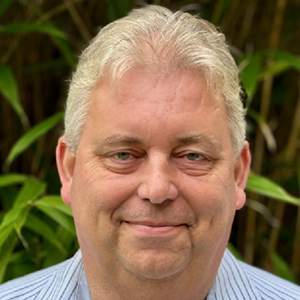
Department of Physical Education and Health, Queen Maud University College of Early Childhood Education
Children´s risky play – thrilling experiences and developmental benefits
A natural part of children’s physical active play involves engaging in play that is a bit scary and somewhat risky (i.e., risky play). Children actively seek this thrilling kind of play, and nearly all children love the quivering feeling of butterflies in their tummy when they encounter something they do not know if they can manage or what the consequences of their actions will be. This presentation will focus on what risky play is, and why it is important for children’s experiences, development, and learning. Through risky play children build self-confidence, physical/motor competence, social skills, psychological resilience, and risk management skills. Nevertheless, within an increasingly safety focused society, our desire to protect children has invaded their daily lives. The presentation will also discuss how this has resulted in a culture of caution among educators, teachers and parents, as well as restrictive rules and laws on children's play environments.
Ellen Beate Hansen Sandseter. Phd, professor at Department of Physical Education and Health at Queen Maud University College of Early Childhood Education (QMUC). Her primary research focus is on children’s physical play, outdoor play, and risky/thrilling play among children in Early Childhood Education and Care (ECEC) institutions, as well as how to develop physical environments for children’s play, development and learning. She has also been involved in research on Norwegian children’s experiences of participation and well-being in Norwegian ECEC institutions, and projects about safety work, child injuries and injury prevention in Norwegian ECEC institutions. Currently she is the project manager of a project exploring the effects of childhood risk experiences on children’s (7-10 years) risk assessment and risk management skills through the use of Virtual Reality (VR) technology as well as eye-tracking and motion capturing.

Department of Health & Kinesiology, University of Utah
When children outperform young adults: Examinations into the neural underpinnings of childhood advantages in motor learning
Changes in a specific behavior across the human lifespan are frequently characterized as an inverted-U trajectory. That is, young adults exhibit optimal performance, children are conceptualized as developing systems progressing towards this ideal state, and older adulthood is characterized by performance decrements. However, as developmentalists, we know that not all behaviors follow this trajectory, as there are well-known instances in which children outperform young adults. This presentation will focus on recent behavioral and neuroimaging research that examines instances of childhood advantage in the domain of motor learning and memory consolidation. An overarching theme of this presentation is that investigations into the neuroplastic processes underlying childhood advantages in motor behavior offer a unique opportunity to increase our understanding of the developing brain.
After completing his B.S. in Movement Sciences at Texas Christian University (US), Dr. King completed both his Master’s and PhD under the supervision of Dr. Jane Clark at the University of Maryland (US). His graduate research investigated the development of multisensory-motor control in both typically developing children and children with Developmental Coordination Disorder. Following his graduate training, Dr. King completed postdoctoral fellowships in the laboratories of Dr. Julien Doyon at the University of Montreal (Canada) and Dr. Stephan Swinnen at the KU Leuven (Belgium). His postdoctoral research employed various neuroimaging approaches (e.g., functional MRI, magnetic resonance spectroscopy) to examine the effects of sleep and non-invasive brain stimulation on motor learning-related brain plasticity in healthy older adults. Dr. King currently leads the Lifespan Motor Neuroscience lab at the University of Utah (US). Broadly, the lab adopts the motor system as a model to investigate the systems-level neuroplasticity underlying learning and memory processes across the human lifespan.

Department of Experimental Clinical and Health Psychology, Ghent University
Known but unloved: Motor difficulties in autism
Motor difficulties are increasingly being highlighted in several neurodevelopmental conditions, including autism, ADHD and dyslexia. Despite their prevalence, however, these motor problems are among the most neglected and least understood aspects of neurodevelopmental pathways and they are widely viewed as peripheral features of a condition. Much remains to be learned about their developmental impact or their potential as early diagnostic or prognostic markers. We discuss what is currently known about causes and consequences of motor challenges in neurodevelopmental conditions, with a primary focus on cascading developmental effects in individuals with autism. Since motor skills may be one of the domains in which developmental divergence is first seen, prospective longitudinal studies with infants at elevated likelihood for autism are likely to be very informative. We will share some findings and insights from our own infant cohorts which we followed from 5 months onwards until 3 year and later on into school-age.
Herbert Roeyers is Professor of clinical psychology and chair of the Research in Developmental Disorders Lab (RIDDL) in the Faculty of Psychology and Educational Sciences of Ghent University, Belgium. He studies neurodevelopmental conditions, mainly autism, ADHD, and learning disabilities as well as atypical development in term and preterm born children. His main research interests are the investigation of developmental trajectories and biomarkers in infants and preschoolers with, or at elevated likelihood for, autism and the psychological theory building of ADHD as well as the clinical application of this work via screening, diagnosis and early intervention. He is involved as PI in several large-scale national and international research projects. He was the main supervisor of 31 completed doctoral dissertations. He is (co)author of more than 270 international peer reviewed publications.

1 Department of Physical Education, University of South Carolina
2 Department of Human Motion and Sport Science, University of Rome "Foro Italico"
A Holistic Approach to Development: Implications for Motor Development Research
Research linking motor development to multiple domains of functioning across the lifespan continues to gain momentum and continues to garner attention in other academic domains and public entities. To capitalize on this momentum, it seems prudent to continue to integrate our collective, but sometimes siloed, research foci to comprehensively understand the integrative and cascading impact that “learning to move” and "moving to learn" have on physical, psychological, social, emotional, and cognitive development. All of these factors play a role for long-term health, well-being and achievement, yet our work is only beginning to scratch the surface with respect to its application. Pursuing this aspirational and ambitious goal also speaks to the continuation of our collective “bridge-building” with researchers in other academic disciplines and to establish and/or augment current and future initiatives with school, community, industry, and government partners. Thus, integrating motor development research in large-scale collaboratives may necessitate we rethink our collective role in future research on how we assess and promote development in the motor as well as other domains, and how we ensure knowledge transfer and translation, keeping in mind a focus on the feasibility and longer-term sustainability of implementation from a broader ecological perspective.
Dr. Stodden is a Fellow of the U.S. National Academy of Kinesiology, President-elect of the International Motor Development Research Consortium (IMDRC), a research Fellow of IMDRC and SHAPE America, and the Director of the Human Performance and Development Laboratory in the Department of Educational and Developmental Science at the University of South Carolina. His research focuses on promoting the development of motor competence and its impact on multiple developmental domains across the lifespan. Dr. Stodden’s research emphasizes the need to address and understand developmental mechanisms and causal pathways that impact long-term trajectories of health and well-being. His work also addresses the need to examine motor competence assessment to improve its predictive utility on various health and developmental outcomes. To date, he has over 140 publications 42 keynote/invited presentations, and his work has been cited over 13,000 times. Dr. Stodden has been funded by multiple organizations including the U.S. National Institutes of Health, the Duke Endowment Foundation and U.S. National Association for Sport and Physical Education. Dr. Stodden continues to work with multiple research groups in various countries around the world to enhance research capacity and advocate for the field of motor development.
Graduate in Physical Education, degree in Movement and Sport Sciences, master of Psychology (Rome) and PhD in Philosophy (Berlin). Professor at the University of Rome “Foro Italico”. Main research foci: physical activity and cognition, motor competence and enriched physical education. Career total of 120 peer reviewed publications, 47% as first or senior author, 43% in the last five years (2019-present). Scopus H-Index is 36, citations > 4,600, highest IF: 22 (Psych Bull). Author, co-author or editor of 14 international and 3 national books on physical activity and cognition and physical activity for educational achievement. She has pioneered in the field of physical activity and cognition and inspired young researchers from different countries. Invited speaker: 34 (18 International, 16 National not Italian), of which 14 Keynotes in: Belgium, Chile, Finland, Germany, Hungary, Norway, Portugal, Slovenia, Spain, Switzerland, Taiwan, US. Associate editor for JAPA (2009-2019) and MENPA (2020 to present); editorial board member of JSEP and JMLD. She has designed validated and contributed to scale up, nationally (with more than 35,000 classrooms and 750,000 children involved) and internationally, a Whole School, Whole Child, Whole Community (WSCC) Corporate Social Responsibility initiative (“Joy of Moving”) of holistic child development promotion through quality physical activity.

Collen-Francqui Chair 2022-2023.

Inkendaal Rehabilitation Hospital and Faculty of Psychological Sciences and Education at Université Libre de Bruxelles
Towards the end of disability?
Throughout history, disability has been an object of scorn, stigmatisation, rejection, fascination, and also of reflection on the human condition and life in society. The difficulties are necessarily defined in relation to situations and ways of functioning that are most prevalent in society. Many cultures have seen disability as a manifestation of occult powers, punishment, or trials. For some civilisations, however, disability may confer exceptional abilities. A much more recent perspective views disability as the consequence of health problems, and focuses on their impact with the aim of remedying them through therapies and technical aids. In contrast to this medical approach, a social model considers that disability is created by society, as a result of environmental conditions that prevent full participation in society. Addressing the problem must therefore target the barriers to participation, both in the physical organisation of the environment and in ideology and culture. There is now a growing recognition that the complexity of the concept of disability arises from the interaction between the characteristics of a person (not only the components of their health) and those of the society in which they live. This perspective opens up the recognition, understanding and research of shared human experience and individual differences. Technological advances, ethical questions about human enhancement, and cultural changes point to a time when disability will no longer be a defining category - for better or for worse for people with disabilities.
Bernard Dan is a paediatric neurologist at Inkendaal Rehabilitation Hospital, Professor of neuroscience and developmental psychology at the faculty of Psychological Sciences and Education at ULB, and visiting professor at the VUB and KU Leuven. Professor Dan has researched, taught, authored books and has contributed to significant changes in relation to knowledge about neurodevelopmental disabilities. As Editor-in-Chief of the internationally respected journal Development Medicine and Child Neurology (DMCN), which publishes scientific articles on childhood-onset disability, Professor Dan has overseen a tremendous evolution in the way we view disability and perform research in this field.His clinical and scientific interests include cerebral palsy, neurogenetic disorders and neurophysiology. He is chair of the European Academy of Childhood Disability (EACD) and on the steering committee of other international academies dedicated to childhood disability [American Academy for Cerebral Palsy and Developmental Medicine (AACPDM), Australian Academy for Cerebral Palsy and Developmental Medicine (AusACPDM), British Paediatric Neurology Association (BPNA), chair of the scientific committee of La Fondation Paralysie Cérébrale and of the Auschwitz Foundation]. He has written more than 300 academic articles and several books on various aspects of disability and bioethics.He has also been the scientific curator of several art exhibitions dedicated to disability and is the author of novels and short stories.